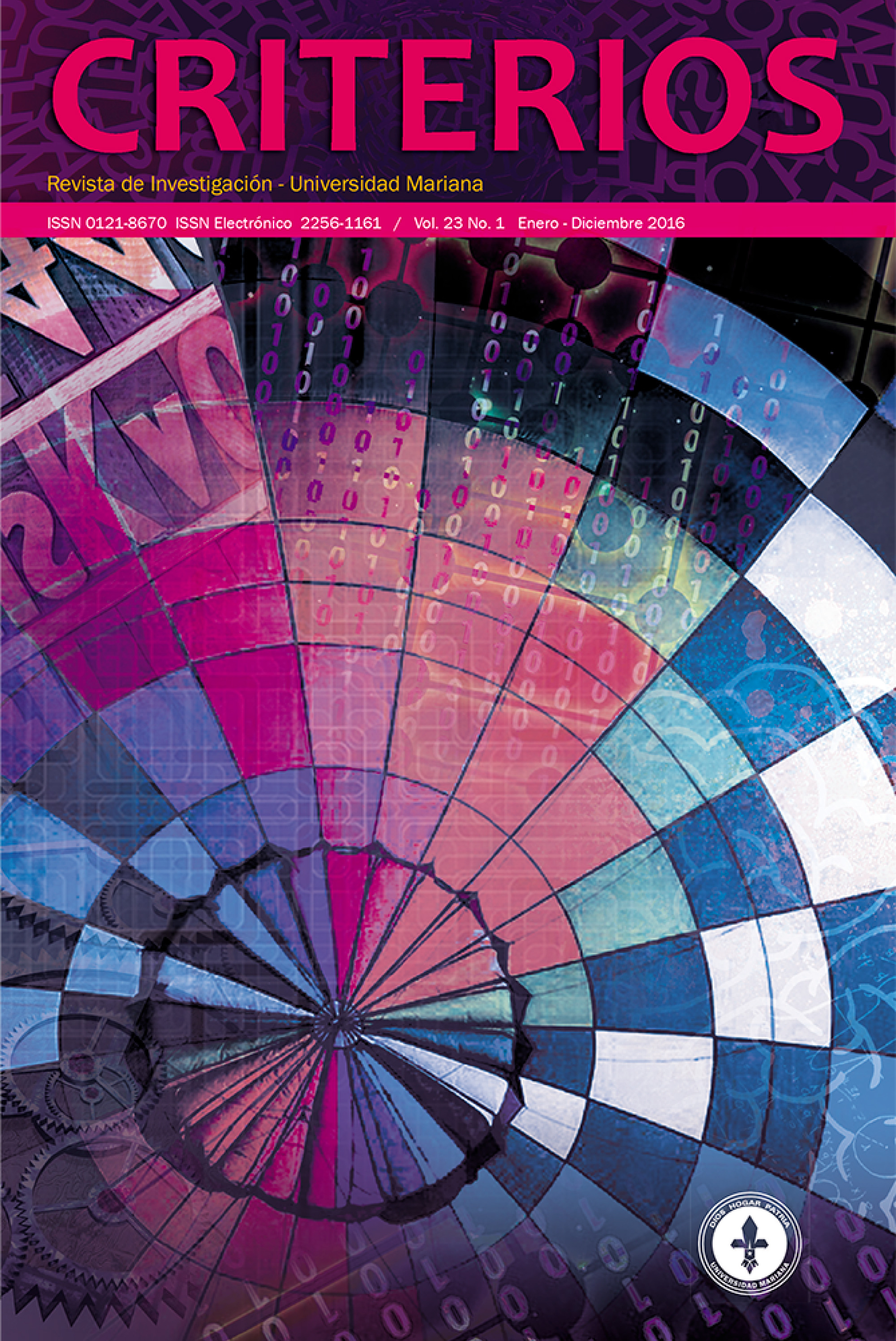Inclusive higher education and diversity, a psychoanalytic look at higher education
Keywords:
diversity, higher education, inclusion, Lacanian psychoanalysis, subjectivityAbstract
There are some phenomena that go beyond the curricular, pedagogical,
didactic, methodological issues, etc. in current higher education. Subjectivity
is usually excluded, seeking that the teaching involves homogenizing,
standardizing, making the totality of students reproduce the same. In the face
of this, interesting proposals have emerged over the last few years, which take
the approach of diversity, and, to a lesser extent, inclusion, to give a different
place to the agents of higher education. On the other hand, the Lacanian
psychoanalysis contributes significantly to the problematic of subjectivity, a
concept that allows retaking to some extent the terms diversity and inclusion.
Taking into account the above, it may be asked: How to understand the
possibilities of diversity and inclusion in Colombian higher education? What
contributions can provide psychoanalysis to support some kind of proposal
in this regard? The questions raised in the first place will guide the present
reflection on higher education and psychoanalysis, in order to provide some
contributions to diversity, to a greater extent, and to inclusion as a construct
of solidarity with the first one.
The approaches of psychoanalysis are proposed with reference to the
theories and developments of Jacques Lacan, author of great relevance
of the history of psychoanalysis, to the point of originating a trend of
psychoanalysis called Lacanian psychoanalysis. Regarding diversity in the
educational field, some authors of international relevance are taken up
because of their relevance at the present time.
Author Biography
Esteban Ruiz Moreno, Universidad Mariana
Psicoanalista, Foro de Psicoanálisis del Campo Lacaniano de Pasto - IF; Psicólogo. Profesor tiempo
completo de Psicología, profesor investigador Maestría en Pedagogía, Universidad Mariana. Integrante del grupo de investigación INDAGAR. San Juan de Pasto, Nariño, Colombia.
References
Arnaiz, P. (2000). Educar en y para la diversidad. Recuperado de http://diversidad.murciaeduca.es/tecnoneet/docs/2000/4-2000.pdf.
Descartes, R. (1992). Discurso del método. Bogotá: Planeta.
Echeita, G. y Ainscow, M. (2008). La educación inclusiva como derecho. Marco de referencia y pautas de acción para el desarrollo de una revolución pendiente. Recuperado de https://www.uam.es/personal_pdi/stmaria/sarrio/DOCUMENTOS,%20ARTICULOS,%20PONENECIAS,/Educacion%20inclusiva%20como%20derecho.%20Ainscow%20y%20Echeita.pdf.
Eggen, P. y Kauchat, D. (1999). Estrategias Docentes. Buenos Aires: Fondo de Cultura Económica.
Freud, S. (1992). ¿Debe el psicoanálisis enseñarse en la universidad? Obras Completas. Vol. XVII. Buenos Aires: Amorrortu.
Freud, S. (1993). Análisis terminable e interminable. Obras Completas. Vol. XXIII. Buenos Aires: Amorrortu.
Kant, I. (1999). Respuesta a la pregunta: ¿Qué es la ilustración? Filosofía de la historia. Buenos Aires: Editorial Nova.
Lacan, J. (1995). El Seminario de Jacques Lacan. Libro 11. Los cuatro conceptos fundamentales del psicoanálisis. Buenos Aires: Paidós.
Lacan, J. (2003a). La ciencia y la verdad. Escritos II. Ciudad de México: Siglo XXI.
Lacan, J. (2003b). Variantes de la cura-tipo. Escritos I. Ciudad de México: Siglo XXI.
Lacan, J. (2008a). El Seminario de Jacques Lacan. Libro 17. El reverso del psicoanálisis. Buenos Aires: Paidós.
Lacan, J. (2008b). El Seminario de Jacques Lacan. Libro 16. De un Otro al otro. Buenos Aires: Paidós.
Magendzo, A. (2004). Educar para la diversidad. En la construcción de una sociedad democrática es imperativo reconocer la legitimidad del Otro-Otra. Altablero, (28). Recuperado de http://www.mineducacion.gov.co/1621/article-87388.html.
Millot, C. (1990). Freud anti-pedagogo. Ciudad de México. Paidós.
Ministerio de Educación Nacional (MEN). (2013) Lineamientos. Política de educación superior inclusiva. Recuperado de http://www.mineducacion.gov.co/1759/articles-340146_recurso_1.pdf.
Ministerio de Educación Nacional (MEN). (s.f.). Pedagogía. Recuperado de http://www.mineducacion.gov.co/1621/article-80185.html.
Organización de las Naciones Unidas para la Educación, la Ciencia y la Cultura (UNESCO). (2005). Guidelines for inclusion: Ensuring Access to Education for All. Recuperado de http://unesco.org/educacion/inclusive.
Organización de las Naciones Unidas para la Educación, la Ciencia y la Cultura (UNESCO). (2006). La diversidad cultural. Recuperado de http://www.unesco.org/bpi/pdf/memobpi36_culturaldiversity_es.pdf.
Palacio, L. (2011). El psicoanálisis y su enseñanza. El asunto del método en la investigación psicoanalítica. Medellín: Departamento de Psicoanálisis de la Facultad de Ciencias Sociales y Humanas de la Universidad de Antioquia.
Suárez, M. (2000). Las corrientes pedagógicas contemporáneas y sus implicaciones en las tareas del docente y en el desarrollo curricular. Revista Acción pedagógica, 9(1 y 2), 42-51.
Uribe, J. (2009). Comentario de texto a la sesión del 26 de noviembre de 1969: Producción de los 4 discursos. Revista Indecible, (4). Los cuatro discursos en cuestión. Medellín: Asociación Foro del Campo Lacaniano de Medellín.
Zuleta, E. (2007). Educación y Democracia: un campo de combate. Bogotá: Fundación Estanislao Zuleta.
How to Cite
Downloads
Downloads
Published
Issue
Section
License

This work is licensed under a Creative Commons Attribution 4.0 International License.
Revista Criterios es publicada por la Editorial UNIMAR de la Universidad Mariana bajo los términos de la licencia Creative Commons Reconocimiento 4.0 Internacional (CC BY 4.0)

Altmetric
| Article metrics | |
|---|---|
| Abstract views | |
| Galley vies | |
| PDF Views | |
| HTML views | |
| Other views | |




